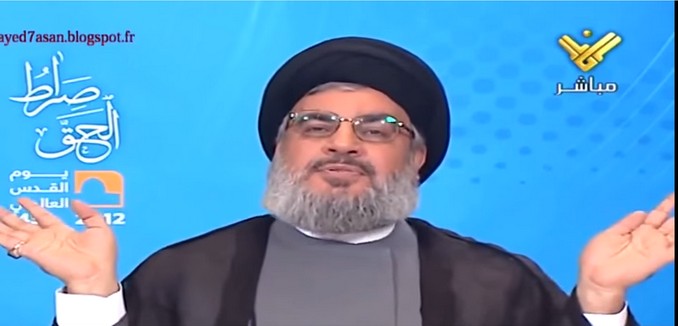The Hezbollah International Financing Prevention Act of 2015, which passed the Senate unanimously last week, would strengthen the United States’ ability to clamp down on the Iranian-backed terrorist group’s illicit financing activities if it’s signed into law, Tyler Stapleton, a deputy director at the Foundation for Defense of Democracies, wrote in a policy brief on Monday.
The legislation would give the U.S., which designated Hezbollah a terrorist organization in 1995, an enhanced “ability to target the group’s activity in countries where it is only partially designated or not designated at all,” Stapleton argued. The bill would also classify Hezbollah as a “significant” drug trafficker and a transnational criminal organization, which would allow international law enforcement agencies such as Interpol to target the terrorist group’s global financing network.
Stapleton listed a number of specific ways that the legislation would improve America’s ability to fight Hezbollah.
The legislation is important in light of Hezbollah’s global reach to areas in the Western Hemisphere, where it has used the drug trade, trafficking of exotic animals, and black-market sales of precious metals and gems to finance its terror activities. These funds are not only used to prop up the group’s domestic power, but to expand its increasingly brazen military operations alongside the Assad regime in Syria.
Hezbollah has also been successful in exploiting the Lebanese economy through informal transnational banking networks and real estate. The informal nature of these institutions, however, means they are difficult to track and even more difficult for the Treasury Department to designate. The legislation compensates for those obstacles by empowering Treasury to impose strict conditions on U.S. entities that transact with foreign financial institutions that knowingly work with Hezbollah.
The legislation would also attempt to limit propaganda used by Hezbollah to recruit new members and elicit financial support. This would require the State Department to report on satellite, broadcast, and internet providers that support the Hezbollah-run channel Al-Manar, which Treasury designated back in 2006.
In addition, the bill would require the government to provide Congress with more information on Hezbollah’s illicit activities, which legislators could use to better fund the resources necessary to counter the terrorist group.
Stapleton acknowledged that Hezbollah will very likely be strengthened by the sanctions relief granted to Iran as part of the nuclear deal the regime signed with the P5+1 powers, an outcome that the bill cannot prevent. However, the legislation “could play a key role in limiting” the amount of money Hezbollah receives.
The terrorist group released a statement denouncing the bill as “a new crime by American institutions” on Monday.
Following the nuclear deal, Iranian Foreign Minister Mohammad Javad Zarif told Hezbollah’s chief Hassan Nasrallah that the agreement would provide a “historic opportunity” to confront Israel. In September, reports surfaced that Iran had increased its funding of two terror groups, Hamas and Hezbollah, in anticipation of the windfall it would receive through sanctions relief.
[Photo: Jacques Letirailleur / YouTube ]




